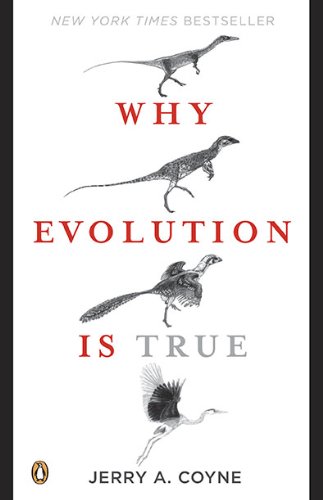Big History: A Summary of Evolution of Life on Earth
The first organisms, simple photosynthetic bacteria, appear in sediments about 3.5 billion years old, only about a billion years after the planet was formed. These single cells were all that occupied the Earth for the next two billion years, after which we see the first simple “eukaryotes”: organisms having true cells with nuclei and chromosomes. Then, around 600 million years ago, a whole gamut of relatively simple but multicelled organisms arise, including worms, jellyfish, and sponges. These groups diversify over the next several million years, with terrestrial plants and tetrapods (four-legged animals, the earliest of which were lobe-finned fish) appearing about 400 million years ago. Earlier groups, of course often persisted: photosynthetic bacteria, sponges, and worms appear in the early fossil record, and are still with us.
Fifty million years later we find the first true amphibians, and after another fifty million years reptiles come along. The first mammals show up around 250 million years ago (arising, as predicted, from reptilian ancestors), and the first birds, also descended from reptiles, show up fifty million years later. After the earliest mammals appear, they, along with insects and land plants, become ever more diverse, and as we approach the shallowest rocks, the fossils increasingly come to resemble living species. Humans are newcomers on the scene—our lineage branches off from that of other primates only about seven million years ago, the merest sliver of evolutionary time. Various imaginative analogies have been used to make this point, and it is worth making again. If the entire course of evolution were compressed into a single year, the earliest bacteria would appear at the end of March, but we wouldn’t see the first human ancestors until 6 a.m. on December 31. The golden age of Greece, about 500 BC, would occur just thirty seconds before midnight.
Notes:
A good summary of the origin of life on Earth evolving all the way up to human beings.
Folksonomies: evolution big history
Keywords:
photosynthetic bacteria (0.929431 (neutral:0.000000)), simple photosynthetic bacteria (0.901757 (neutral:0.000000)), early fossil record (0.750742 (neutral:0.000000)), scene—our lineage branches (0.709612 (negative:-0.312867)), lobe-finned fish (0.563222 (neutral:0.000000)), earliest bacteria (0.554494 (neutral:0.000000)), Big History (0.551215 (neutral:0.000000)), earliest mammals (0.548424 (neutral:0.000000)), multicelled organisms (0.543836 (negative:-0.323882)), four-legged animals (0.541819 (positive:0.224238)), human beings (0.541781 (positive:0.726581)), good summary (0.536497 (positive:0.726581)), single cells (0.518128 (neutral:0.000000)), Earlier groups (0.516370 (neutral:0.000000)), reptilian ancestors (0.515153 (neutral:0.000000)), imaginative analogies (0.513631 (neutral:0.000000)), true amphibians (0.510624 (neutral:0.000000)), true cells (0.503993 (neutral:0.000000)), shallowest rocks (0.497066 (positive:0.324266)), merest sliver (0.494278 (negative:-0.659761)), human ancestors (0.487740 (neutral:0.000000)), golden age (0.486969 (neutral:0.000000)), land plants (0.481998 (neutral:0.000000)), evolutionary time (0.478401 (negative:-0.659761)), entire course (0.468840 (positive:0.203586)), Earth (0.378868 (positive:0.726581)), sponges (0.357993 (neutral:0.000000)), worms (0.339141 (neutral:0.000000)), life (0.313481 (positive:0.726581)), eukaryotes (0.285515 (neutral:0.000000))
Entities:
Greece:Country (0.674059 (neutral:0.000000)), fifty million years:Quantity (0.674059 (neutral:0.000000))
Concepts:
Evolution (0.979362): dbpedia | freebase | opencyc
Eukaryote (0.636965): dbpedia | freebase | opencyc
Animal (0.613615): dbpedia | freebase | opencyc
Organism (0.602559): dbpedia | freebase
Bacteria (0.594013): dbpedia | freebase | opencyc
Species (0.570521): dbpedia | freebase | opencyc
DNA (0.550242): website | dbpedia | freebase | yago
Photosynthesis (0.524333): dbpedia | freebase





